Digital 52 1️⃣9️⃣ - Creating Community-Driven living and working environments for Digital Nomads: the story of Outpost.

Join us on a journey to Bali, the stunning Indonesian island famous for its surf breaks and breathtaking scenery. Bali has become a mecca for digital nomads, attracting a host of coworking and coliving spaces, including a very special one that you are about to (re)discover: Outpost.
Interior Design - On an Island
Read their story on page 310 of “Around The World in 250 Coworking Spaces”.
In 2019, as we worked on “Around The World in 250 Coworking Spaces,” we had plans to visit Bali to better understand the mix of local and international remote workers and digital nomads. But then 2020 arrived and our plans changed. Despite this, we had already learned about Outpost and were intrigued by its warm, community-focused approach. With the pandemic causing many nomads to leave Bali, we wondered how Outpost, a space targeting remote workers, would adapt. Fast forward to today, Outpost is thriving and in this story, we'll explore how they made it happen.
➡️ A little refresher
Who’s behind the featured space?
Meet David Abraham and Bryan Stewart, co-founders of Outpost. Both from the US, their work experiences in various regions sparked their interest in remote work and the remote worker community, leading to the opening of the first Outpost in Bali in 2016.
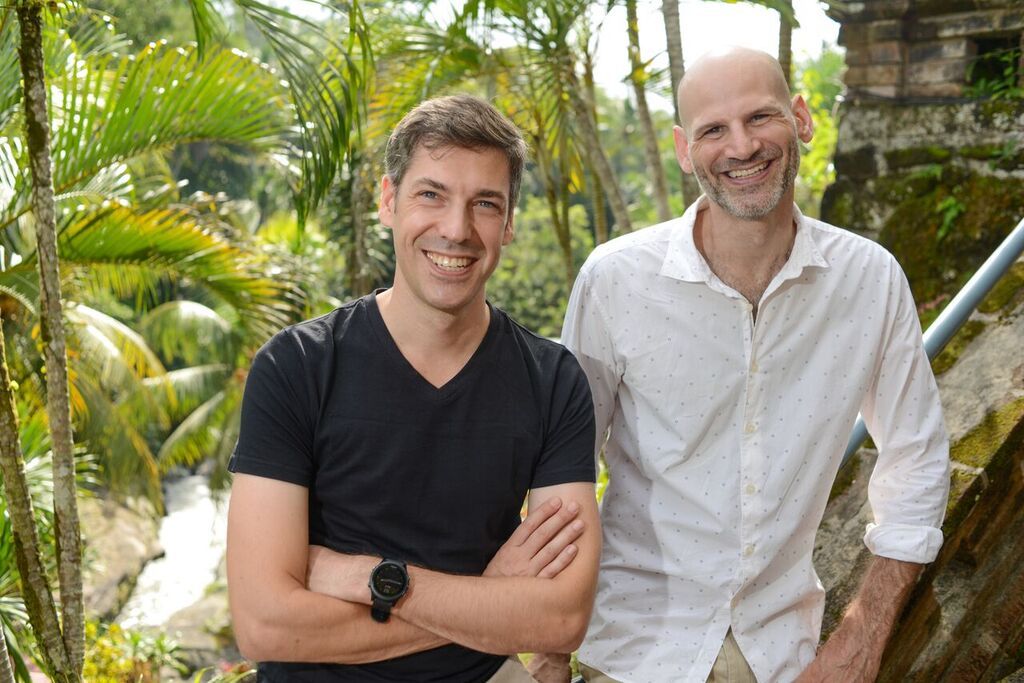
Now, if you wonder how the two met, David explains: “We went to the same graduate school, although different years. We met through our alumni network at Tufts University”
➡️ Key Figures
- Opening year: 2016
- Size when they started: 1 space in 1 country
- Size today: 4 spaces in 2 countries (Indonesia and Sri Lanka)
➡️ A little tour around Outpost
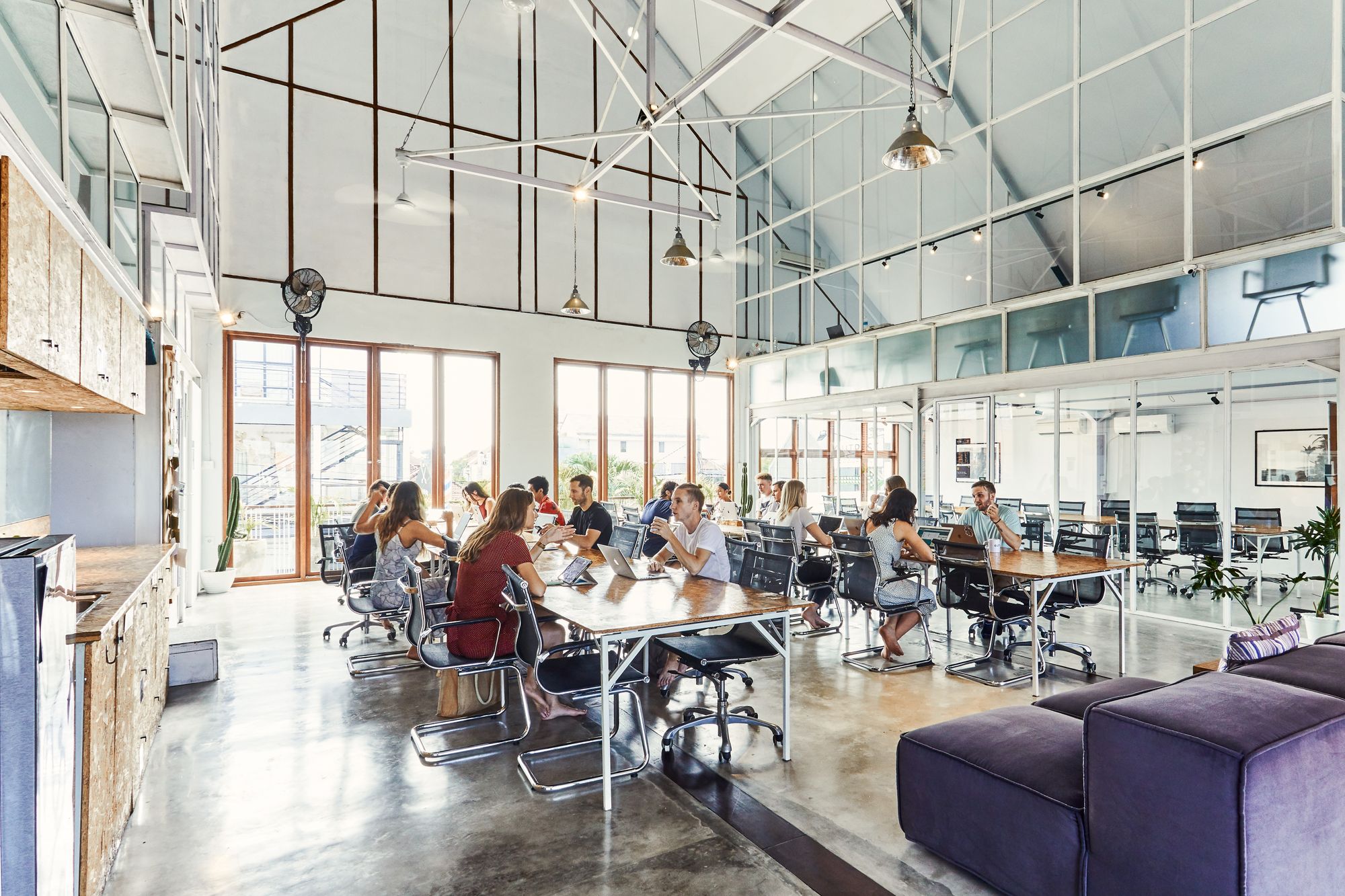
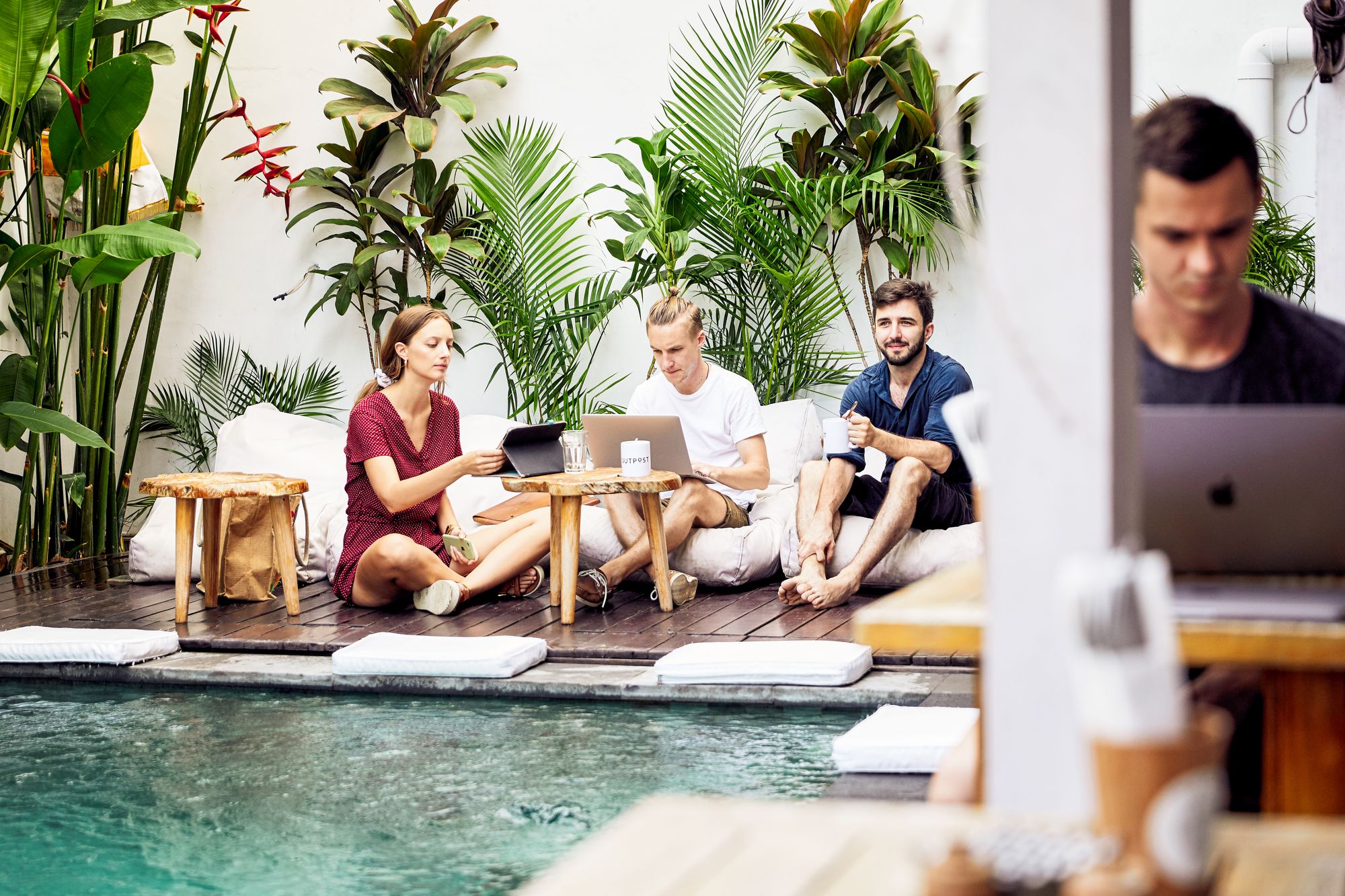
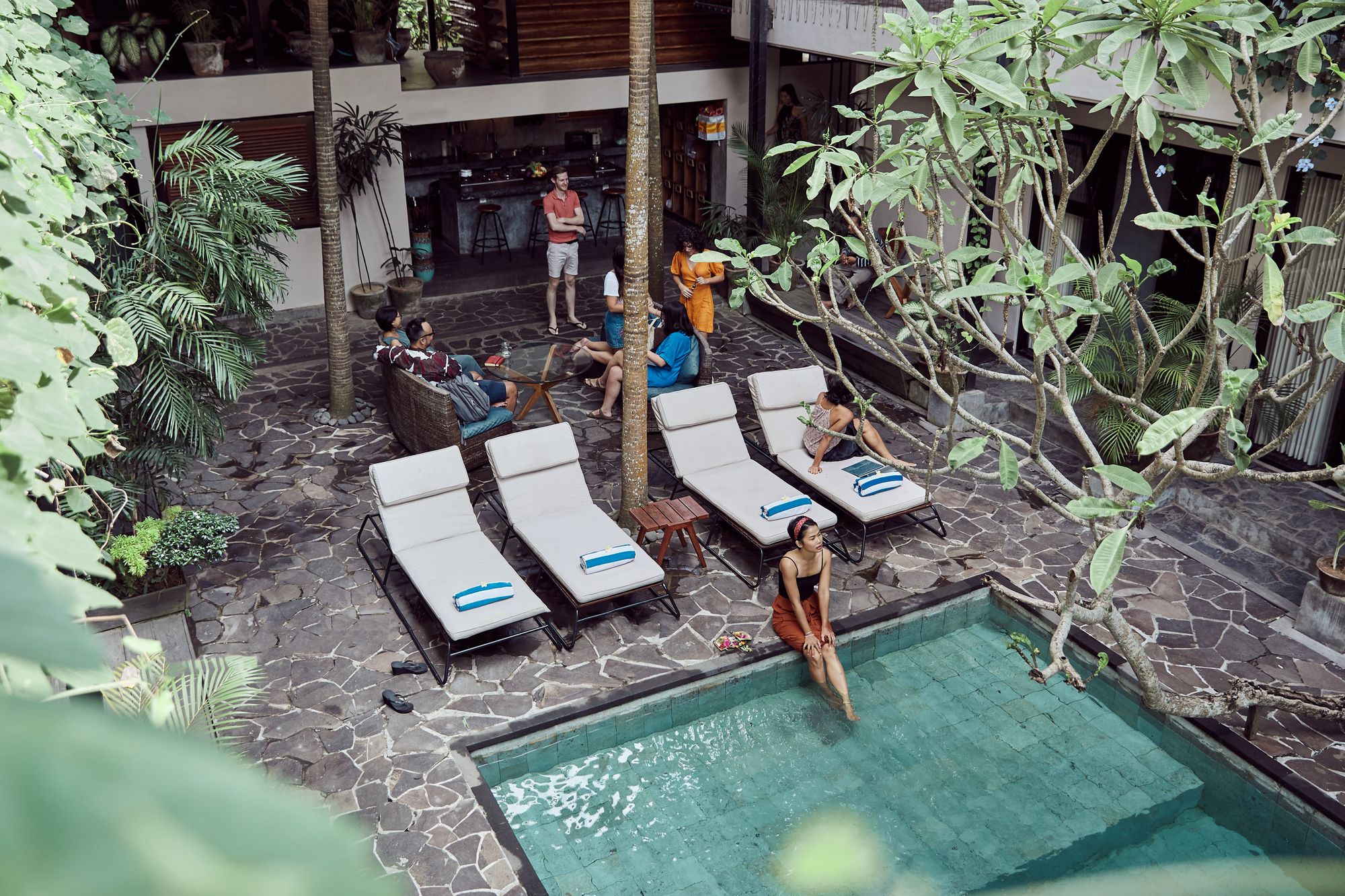
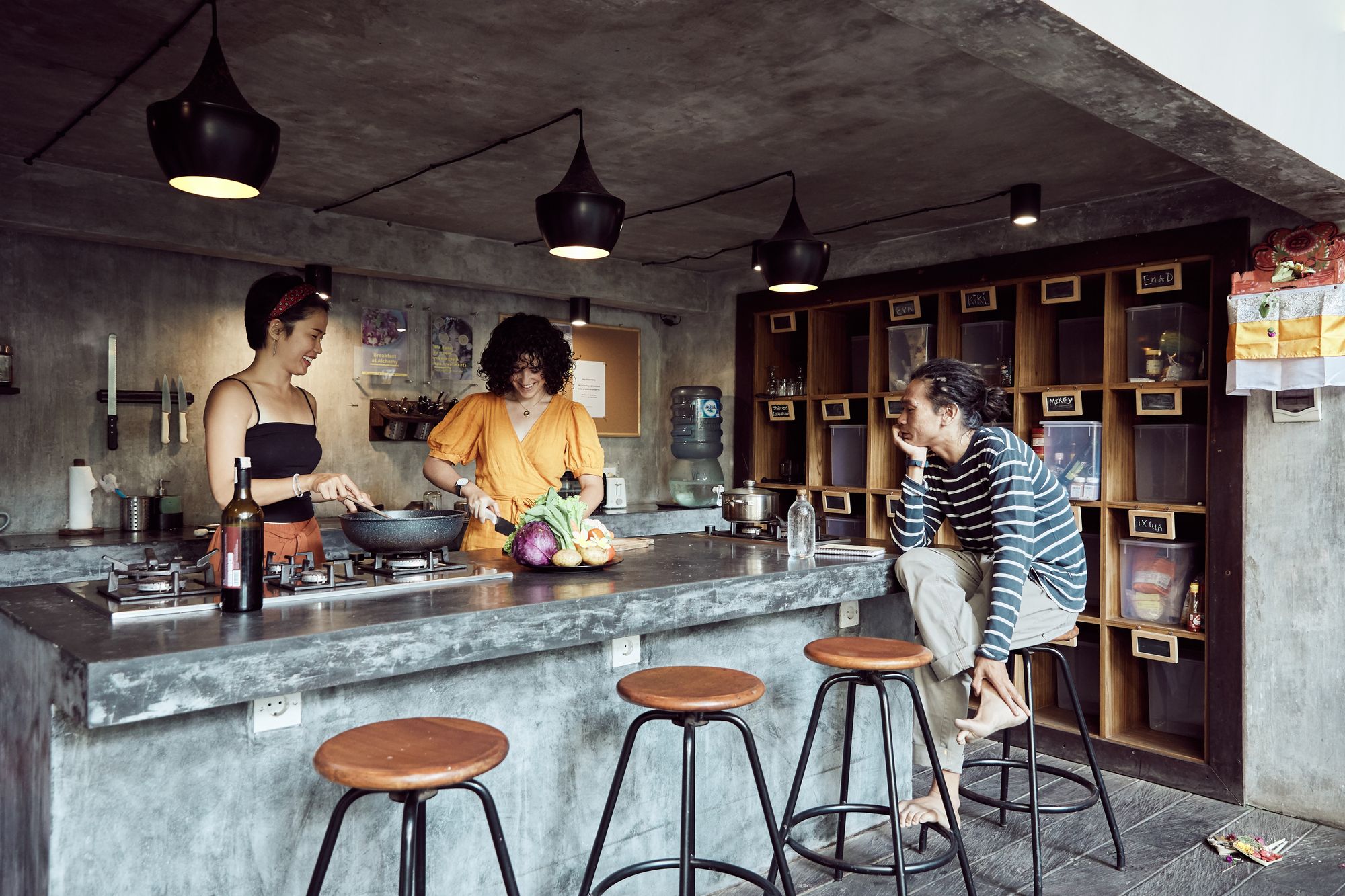
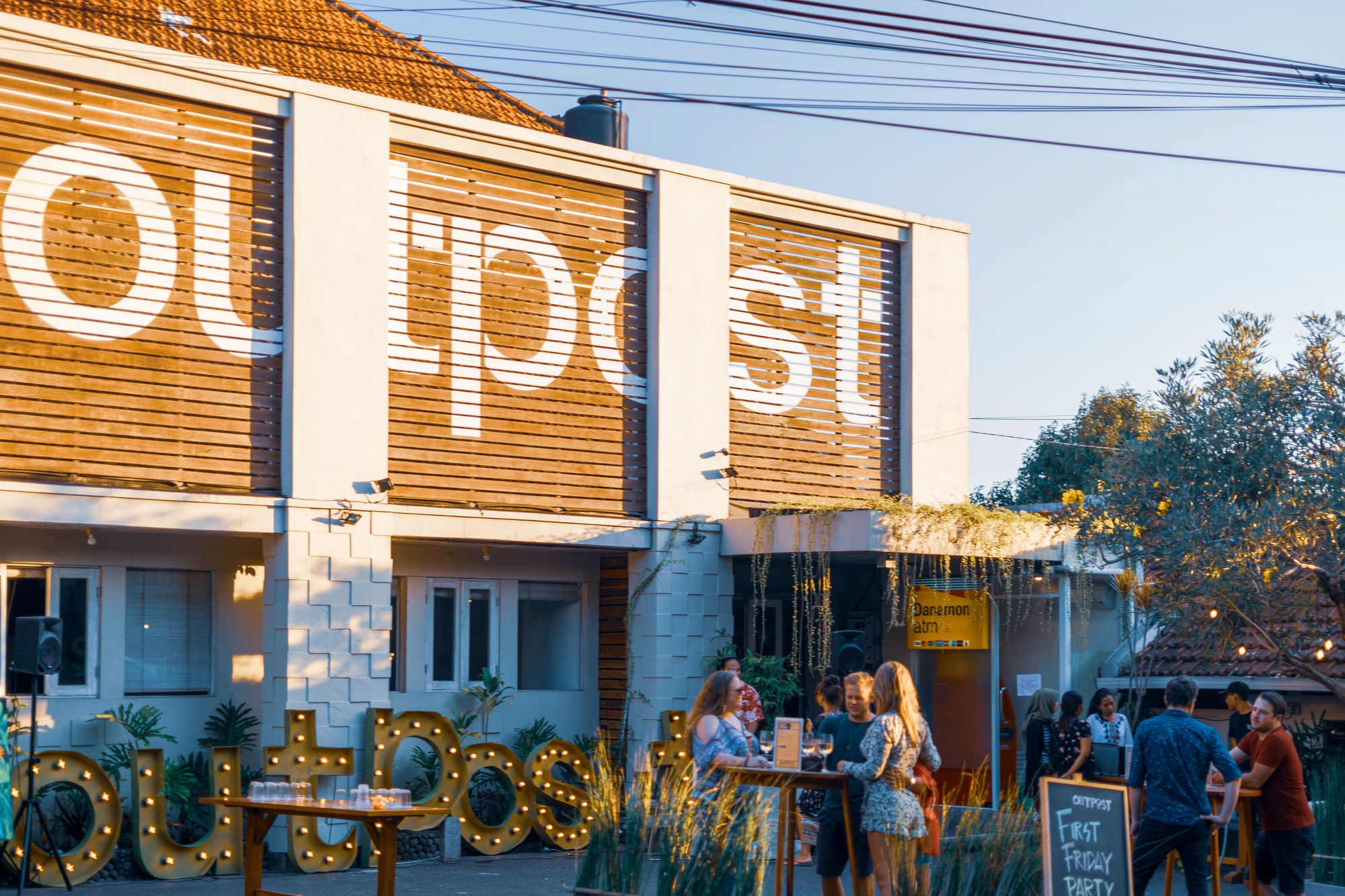
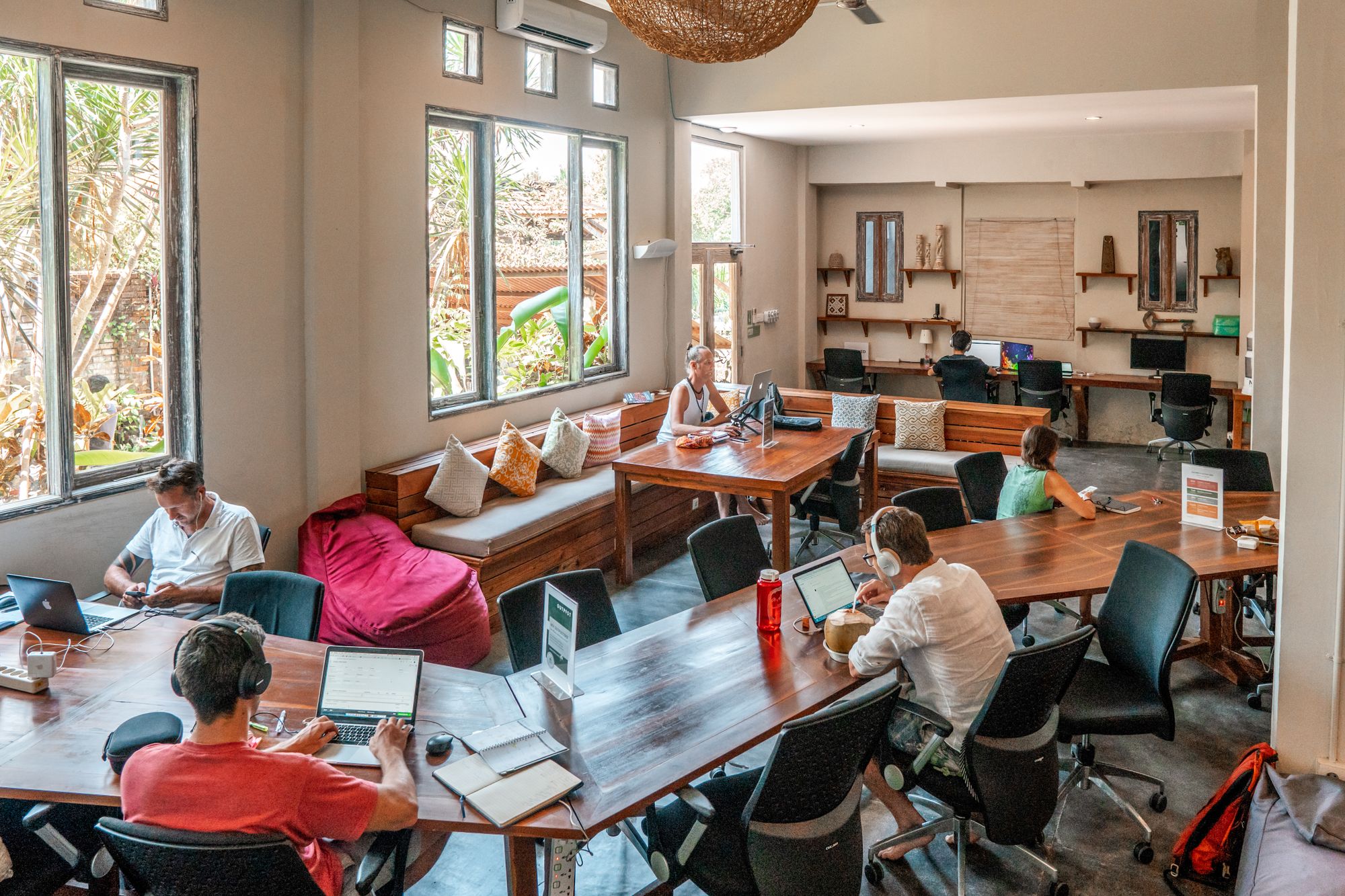
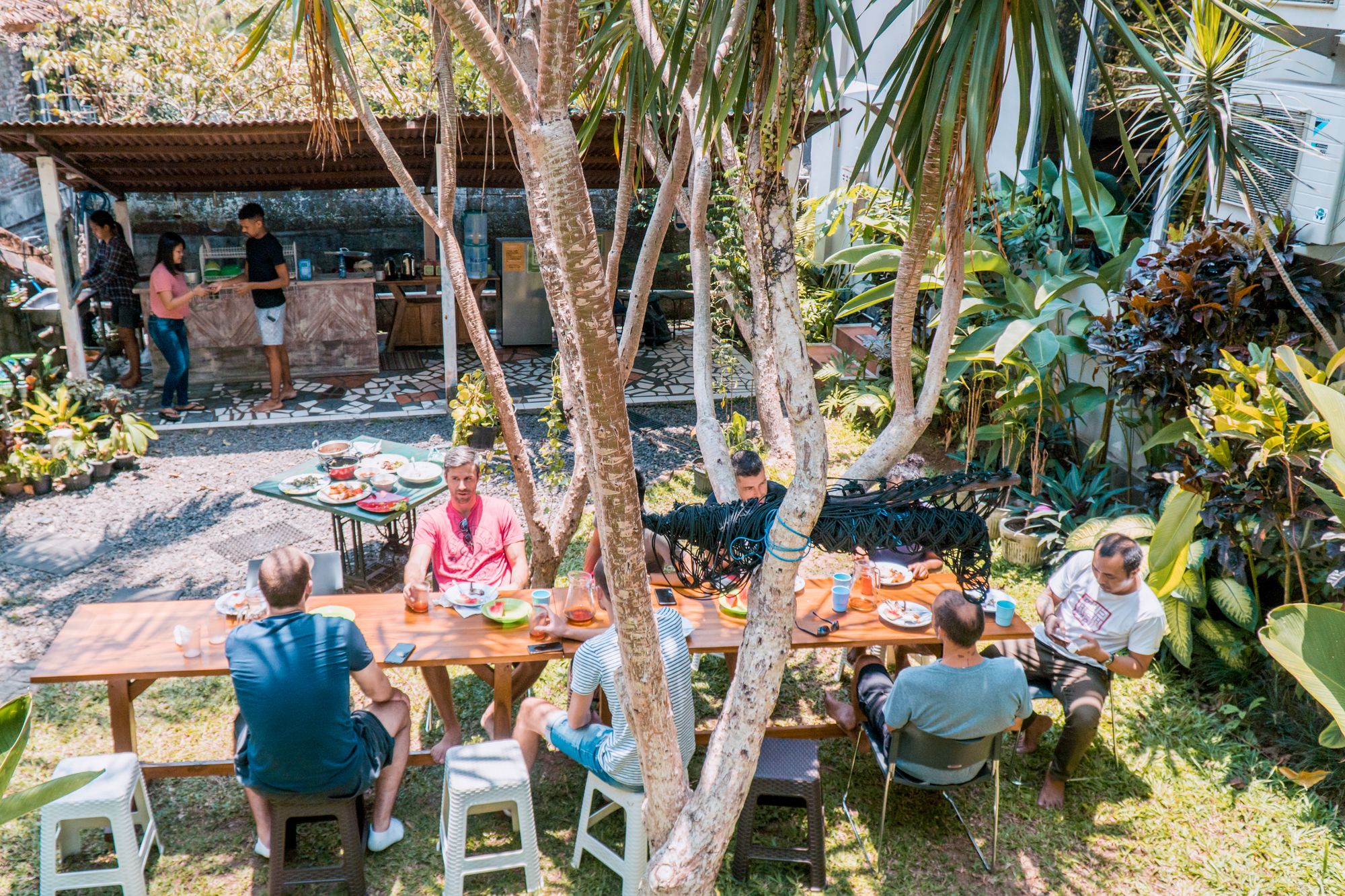
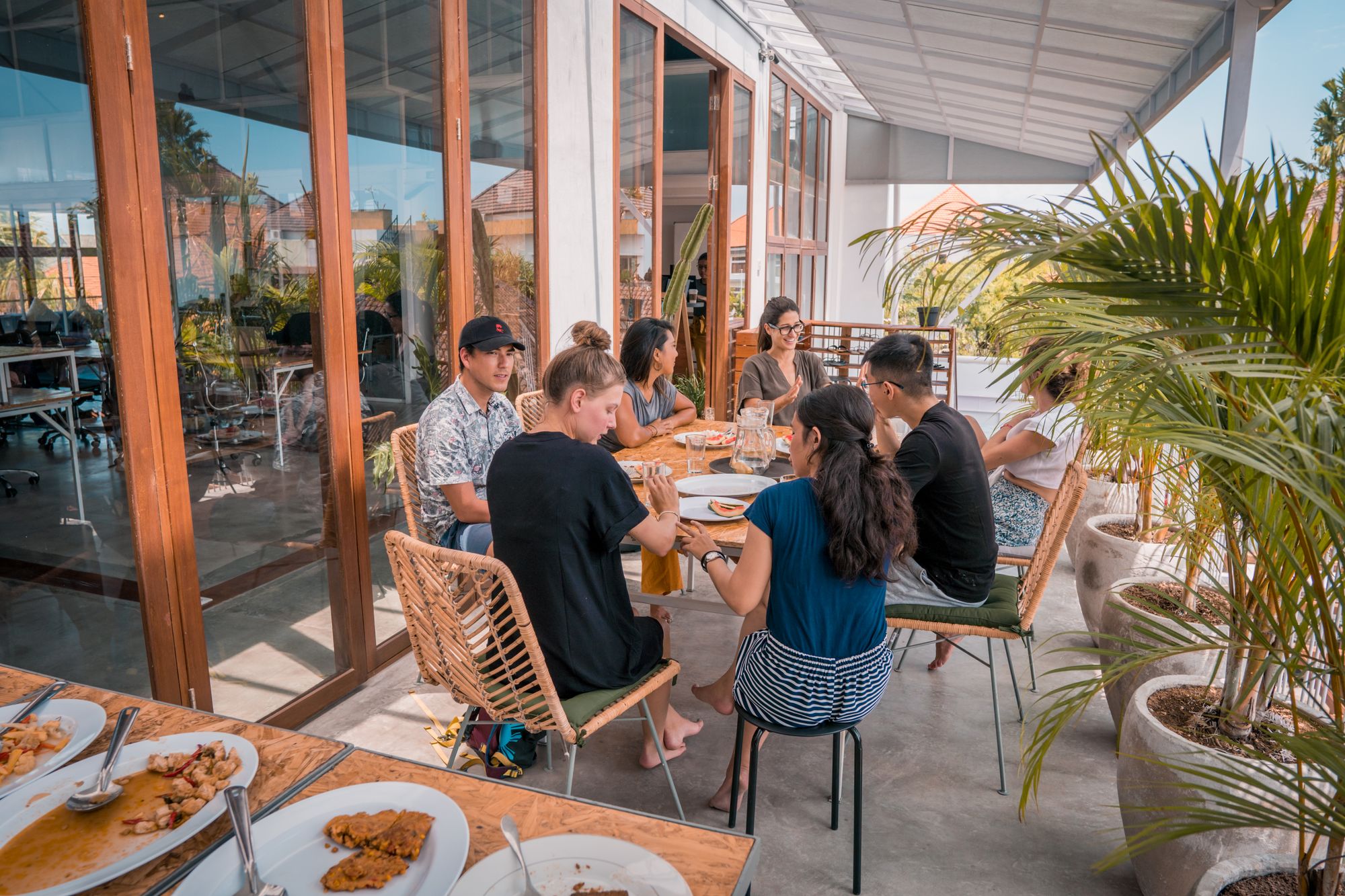
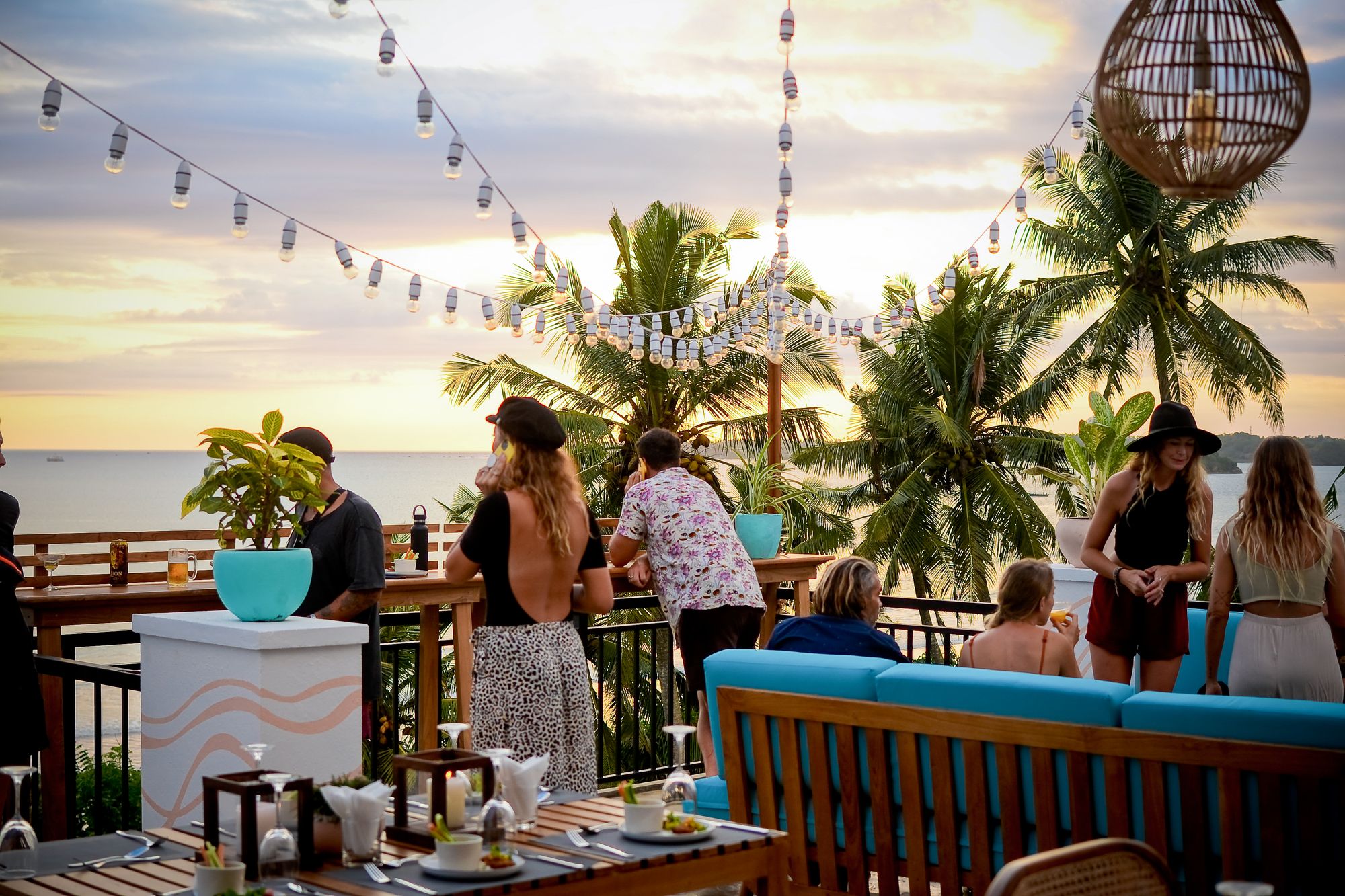
➡️ Behind-the-scenes
Things you didn't read in aw250cs.
As said earlier, both David and Stewart are originally from the US. Hence, starting a business in a foreign country, with a language that’s not yours was a challenge. “Starting a business in your own country is hard, doing it elsewhere is even more so. I learned one thing. I had Indonesian challenges, and while my international perspective is helpful, often times I needed Indonesian solutions. So that meant relying on an amazing team. And that started with our manager Lucky Suherlan who has been with us from day one.”
Outpost being so experience-driven, it has left a mark on many of the people who got the chance to be a part of the community at some point in their journey. So much so that when past-members recognize David and Stewart in other regions of the world, here is what happens: “I remember in 2017, I was in Bangkok with my partner and on the rail system someone came up to us and said you're the Outpost guys, I loved my time there. Hearing how we helped support his lifestyle was meaningful.”
Outpost doesn't have to provide every experience but instead act as a conduit to create connections between members and the local culture.
David Abraham, Co/Founder at Outpost
➡️ Outpost Today
As 2022 came to a close, we held a virtual catch-up session with David to learn about the latest updates on Outpost. In a post-pandemic world, what does life look like? Before diving into our interview, take a few minutes to try to answer the following questions for yourself: do you think nomads have returned to Bali or has the brand had to pivot its concepts in new directions? Additionally, think about the potential impact of Russia's invasion of Ukraine and inflation on a community like Outpost, which might seem far away from everything. Are you ready to test your assumptions? Read on.
💫 Adjusting, Growing.
The pandemic has brought a new group of people to Outpost, a demographic that David and his team haven't seen as much of before. Who are they? You'll discover that in the following section.
Scrolling down, you’ll learn how Outpost went from running spaces in Bali to opening a new location in a new place: Sri Lanka - yet another beautiful island and yet another hotspot for nomads and remote workers.
💬 I’d like to start by asking you: what’s new at Outpost since September 2021? (the month the book was released)
From September 21st to March 21st, 2022, not much changed in Bali as it remained closed. However, the most exciting development was the opening of our property in Sri Lanka. This was met with great enthusiasm from the local community and our rooms were quickly sold out. However, we faced two major challenges: the Russia-Ukraine situation and the financial turmoil in Sri Lanka. This resulted in a decline in tourists from Russia and Ukraine, as well as difficulties with fuel supply causing many travelers to leave the country.
Since March 2021, we've seen a new wave of travelers, primarily remote workers. These individuals have full-time jobs at corporates or small companies and are seeking a unique experience outside of their office and country. Unlike traditional nomads, these remote workers come for a defined period of time, typically two to four weeks, and trust that they can balance work and a rich cultural experience in Bali. This new market segment is a promising development for us as we continue to grow and evolve.
💬 Have you noticed a difference between members that were a part of your community prior to COVID and those who are joining you now?
We have noticed an increase in travelers overseas, particularly those who are traveling for shorter periods of time, such as two to four weeks, and those with more disposable income, but also people who are traveling for the first time.
This can be attributed to people's eagerness to socialize after being cooped up for so long, yet at the same time there may be hesitation as to “How do we go about meeting people?” “How do we do it in a foreign country?” or “How do we feel more comfortable in doing that?” Outpost provides a unique opportunity to help these travelers feel more comfortable in a foreign country and meet others while providing an authentic experience.
💬 How do you choose the places to settle in for Outpost? What are the criterias you look for?
We choose our destinations based on where nomads are flocking to. We aim to provide a live-in workspace and prioritize communal spaces with a design that fosters connection. A U-shaped or O-shaped building with a courtyard or pool in the middle is ideal as it creates a warm, embracing atmosphere.
The interconnectedness of the rooms with lights visible from the windows fosters a sense of community, unlike a long, singular building. While we may not always have the luxury of choosing the exact property, this is what we aim for when selecting a location.
💬 As people might stay for a shorter period of time than people who are not remote worker, how do you keep on working on the community building element at Outpost?
It’s a great question. We have two types of members: those who stay in the workspace for an extended period and those who visit for a shorter duration. Those who stay for a longer period become the “OGs” of the community and help create a consistent communal atmosphere. Shorter-term members experience the surface level of the community but still have opportunities to connect with longer-term members and other travelers who share similar values. While not everyone thinks alike, the common goal is to have an authentic, cross-cultural experience and be immersed in the Outpost culture. The unique connection is formed by mixing these two groups of members.
💬 Just so readers understand, what would you consider to be short-term and long-term? What’s the average stay at Outpost?
During my conversation with people in Singapore, I was fascinated to learn that the average length of time people spend in a coliving space was around three months. Although it seemed quite short, it was actually considered a long stay compared to the typical length of time people stay with us or in a hotel property.
Then is coliving what we offer? I don’t know but I understand that people come to Outpost for the community aspect and to work within a collaborative environment. We do have bookings for longer stays, such as six or eight months, but the average length of stay is about 10 to 14 days, with some people only staying for two or three days, which brings down the average.
💬 You guys are very experience-driven, why was it important for you to offer experiences to members?
Outpost and other coliving and coworking providers may have overlapping customers. When people come to Outpost, they may have previously stayed in coliving spaces or worked in coworking spaces in cities like Singapore, New York, or London.
However, the experience they seek in Bali or Sri Lanka is different. At home, they have their friends and job, so they're mainly looking for a cool place to stay, meet new people, and have a roof over their head. In Bali, they come with only their job in some cases, so they're looking for Outpost to provide services and experiences, and serve as a gateway to connect with other members and the local culture.
Outpost doesn't have to provide every experiences, but instead act as a conduit to create connections between members and the local culture.
➡️ Reflections on building Outpost
💬 What has been your biggest learning out of bringing to life AND growing Outpost?
In 2015 and 2016, my partner and I founded Outpost with the goal of creating a productive space where we could live the lifestyle we wanted. My business partner had worked in China and Jakarta and often found himself working from cafes and other places, and I had a similar experience. We believed that others would come to Outpost for the same reason - to get work done in a productive environment. While productivity is still important for those who come to Outpost, it's not the only factor. People don't just come to be 10% more productive, they want to see results and feel like they're accomplishing something.
Initially, our focus was solely on productivity and we provided quiet rooms, but over time we realized that people also wanted connections with others. Being productive in a resort island can become lonely and our focus has shifted to focus more on community and introducing people to the local area.
Ultimately, the overall Outpost experience is about both productivity and connections with others and the local space.
💬 What would be your best advice to someone thinking about opening a coliving space?
Understand the financial aspect. It is crucial. Many people are attracted to the community aspect of coliving, which is great. Creating communal spaces for people to connect is enjoyable. There's so many people who had come to Bali in 2015 or 2020 to set up a coliving space and it was good for them. But what they realized was that if you set up a six room place and you're living there, it's very hard to consistently make numbers.
While you may be able to cover your own rent, it becomes a full-time job. Ensure that the financing makes sense, whether it comes from your pocket, a loan from a bank, or acquiring a building. Be aware of what you're getting into.
💬 If you could chat with coworking+coliving operators now, what would you like to ask them?
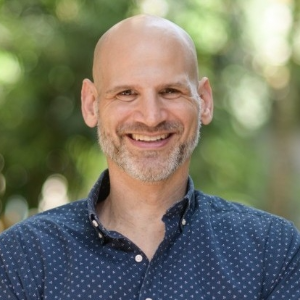
💬 And if you could chat with coworking+coliving members?
How would you know when the space is not meeting your needs?
From the experience side, it's crucial to identify the specific reason for leaving, whether it's a lack of social connections or something else. Understanding the reason will help determine what improvements are needed in the current space.
💬 Last but not least, what’s your biggest dream for Outpost?
I find joy in introducing people to new experiences and cultures. Whether it was introducing my parents to Japan or my friends to Lithuanian cuisine, it was always an enjoyable experience for me. My goal is to multiply this joy by creating meaningful experiences for others that are not only connected to cultures but also to people. These experiences allow people to reflect and learn more about themselves. I hope to continue doing this, whether it's by expanding to more locations or having more people come through and experience it. This would be extremely satisfying for me.
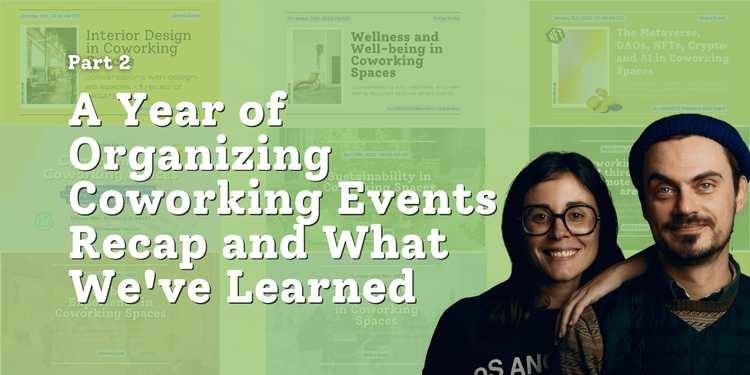




Member discussion